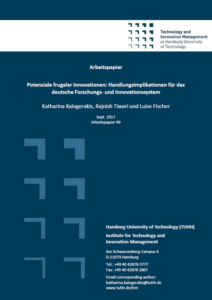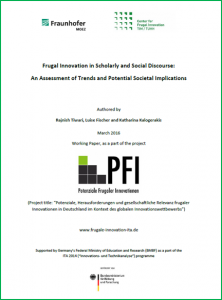A new working paper by our CFI colleagues Malte Krohn and Cornelius Herstatt looks at “The question of a frugal mindset in western MNCs – exploring an emerging phenomenon with a systematic literature review” (Working Paper no. 103, TIM/TUHH)
Frugal innovation in the context of developed ecomomies has witnessed increasing interest in recent years. For Western multinational companies (MNCs) emerging markets represent promising opportunities for growth as well as the threat of new local competitors. Furthermore, economic developments drive the demand for frugal products within Western countries. Succesfully mastering this challenge means that Western MNCs have to challenge prevailing paradigms within their organizations. Literature suggests that these companies have to develop a frugal mindset to succeed in frugal innovation. However, to the best of our knowledge no publication addresses the phenomenon on an empirical basis or provides enough detail for further empirical investigation. To address this gap, we conducted a systematic literature review of 80 publications in the frugal innovation field.



